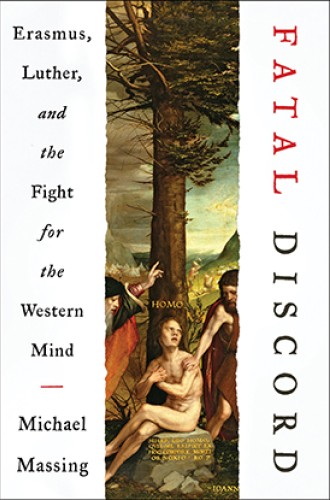Desiderius Erasmus is not much more than a name and a book, The Praise of Folly, which is often appreciated more for its satire than its seriousness. Martin Luther is much more than a name, and more than a single book, too. These two contemporaries, arguably more than any figures, ushered in the early modern era. In the wake of last year’s Luther celebrations, it is good to have a book that connects the Reformer with the revolution in the world of learning associated with the humanist Erasmus.
In chapters that alternate between Erasmus and Luther, Michael Massing presents them as both partners and counterparts: the scholar who shrinks from controversy but ignites it anyway, and the preaching academic whose biblical interpretation precipitated an enduring division in the Western church. Both were participants in the Christian humanism of northern Europe, but they held divergent views about the relation of tradition to church reform. Both were outsiders to the elite echelons of the social order, and each was dependent on patrons both noble and ecclesiastical for the success of his work. Both acknowledged the authority of a unified patristic tradition but argued strenuously about theologies of human freedom and grace.
One challenge in a work of comparison is holding a productive tension between the two subjects, neither accentuating their differences so as to make their contemporaneity ironic nor joining them as representative figures of their time, two sides of the same coin. Preserving a balanced diptych, without overemphasizing differences or making either a representative figure of the times, is difficult, especially when the image of the introverted scholar Erasmus can be contrasted with that of the robust iconoclast Luther. In fact, Erasmus’s circle, although it was dominated by fellow humanists, also included Henry VIII (for whom Erasmus composed a notable Latin poem) and noble patrons whom he met through the efforts of the humanist statesman Thomas More. As for Luther, generally thought to have occupied a more prominent stage, he was with some exceptions (e.g., the Diet of Worms) visible to the world mainly through his writings, and his contacts with rulers were more often than not through correspondence with their agents.





